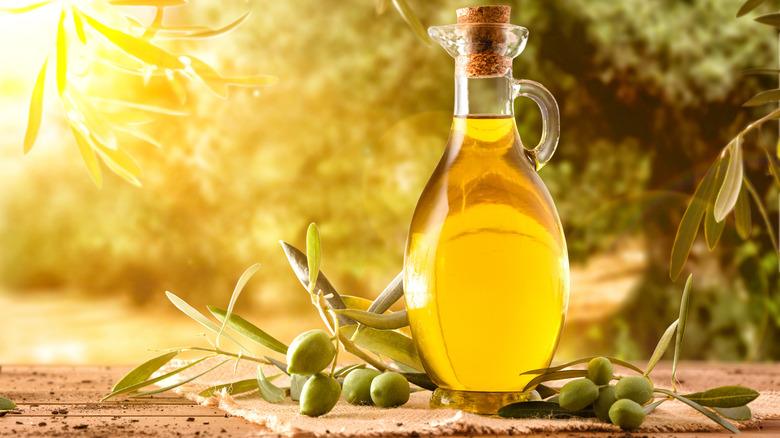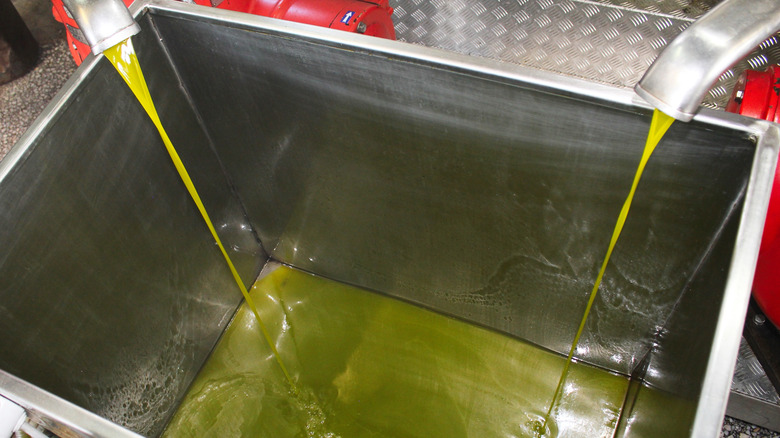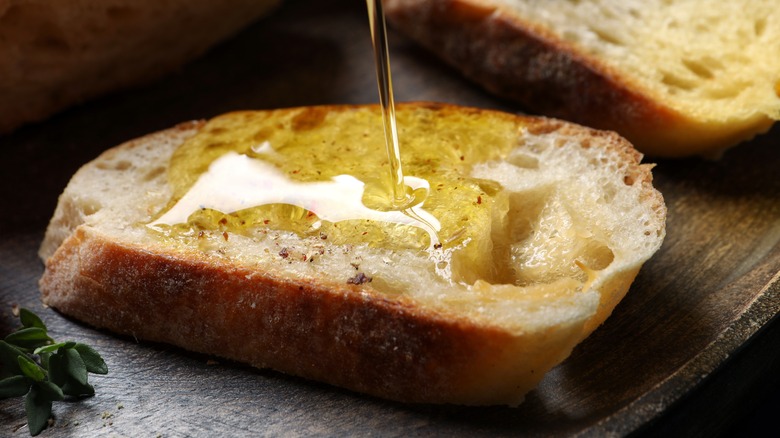What's The Major Difference Between Regular And Extra-Virgin Olive Oil?
It was around 5,000 years ago when the olive began to be intentionally cultivated on the Grecian island of Crete, per Brightland. Olives quickly became an integral part of Mediterranean life and were eventually used by the Greeks, who placed olives inside woven mats and compressed them to extract pure olive oil to use as "food, fuel, skin lotion, contraceptive, detergent, preservative, pesticide, perfume, and adornment," the outlet notes.
The Greeks were right to use olive oil for such a wide variety of purposes, as this yellowish elixir contains a slew of healthy elements, including monounsaturated fats and anti-inflammatory antioxidants, per Healthline.
You've almost certainly had olive oil before, and in all likelihood, you've probably sampled a few different varieties of the stuff. But there are a few major differences between regular and extra-virgin olive oil, and you should be aware of these distinctions before you decide which one to use in your next meal.
The classification of olive oil is tied to its creation process
According to MasterClass, extra virgin is the most pricey olive oil option because it's held to the most rigorous standard of quality. EVOO "... is extracted by grinding and pressing olives; no other chemicals, heat, or processes are used," MasterClass explains.
The most pure method of EVOO production is called cold-pressing, wherein olives are mashed into a pulp before being put through a press that strains the oil from the olive grounds, per Arlotta Food Studio. "Cold-pressed" refers to the fact that the temperature of the oil never exceeds 81.9 F while it's being extracted.
Regular olive oil, also referred to as "pure" olive oil, meanwhile, is created via harsher methods. OliveOil.com describes it as, "... a combination of refined olive oil and 15%-25% virgin olive oil." The refined component of this mixture comes from a post-extraction process that involves both heat and chemicals, which removes certain impurities from the oil but simultaneously strips it of some of the flavor.
When should you use a particular type of olive oil?
As OliveOil.com explains, extra virgin olive oil is best enjoyed in the purest form possible. EVOO could be used in simple salad dressing or drizzled on top of any number of dishes to add a beautiful, flavorful finish.
If you really want to enjoy the rich flavor, dip some fresh bread into extra virgin olive oil. You might even want to swallow a spoonful of the stuff to reap its health benefits — olive oil contains antioxidants and heart-healthy fats, per Healthline.
Still, some home cooks are hesitant to cook with extra virgin olive oil because of its smoke point. When you're planning on introducing some serious heat to your meal preparation, be it from sautéing veggies or grilling meat, it' may be best to go with regular olive oil, which has a smoke point of 470 F, as opposed to EVOO's 410 F, OliveOil.com notes.


